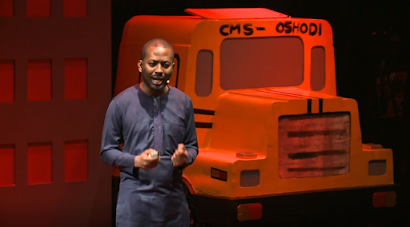Have You Seen My Data?

Coming off of this wave of interest in where the people's data is going, anthropologist Dr. Veronica Barassi comes on to the scene in 2019 with her TED Talk, “What Tech Companies Know About Your Kids”. Barassi is a professor of Media and Communication studies, and has spent a decent part of her career studying social media, children's data tracing, and activism through the internet. In her presentation, Barassi focuses on how companies are tracing data and forming analytic profiles of children starting before they are even born, through the technology and internet habits of them and their parents. As she begins explaining the many methods, Barassi doesn't blame the person's instead using the moment to form a connection with her target audience by saying she had done the same things that they had: relying on 'Dr. Google', downloading pregnancy apps, and sharing her experiences through social media.
Barassi
points to just about every piece of technology in a kid’s life and how it
serves as a way to gather information about kids. While this information on its
own could be an interesting exercise in ‘how many ways are you being tracked at
all times,’ that’s not the main point of Barassi’s speech. She’s not trying to
tell her audience how it’s happening, but why is it so concerning that all this
information is being gathered. Barassi uses her research, as well as her
connection as a mother herself to make an emotion-packed, logic-supported call
to action for the parents of the world to appeal to their political leaders for
new protections.
Backed up by her own study from the Child
Data Citizen project, and other research performed by Fordham University, the
British Medical Journal, the AI Now Institute, Barassi lists the ways that
children's information is being shared to Google, Facebook, Oracle, digital
advertising companies, credit reporting companies, and how this information is
being used for analytic profiling. This data-profile could determine possible
education opportunities, bank loans and insurance premiums, and the
(personally) scariest possibility, potential criminality by police and court
systems. Barassi suggests that these data profiles can be, and possibly already
are, being used to determine a kid’s potential to commit, or recommit, crimes.
Anyone
else getting ‘Minority Report’ vibes?
Barassi's points come off remarkably like a scare tactic, the potential for ruin for a child not even born yet scaring even the people who don't even want children into checking their online footprint. The real stake in the coffin though, is that the data profiles may not even be accurate. Barassi points to the AI Now Institute’s research for this one, citing a 2019 report where the institute stated that AI technology being used for predictive policing was working on biased data. Barassi uses this research, and others, to fund her next more emotionally charged statements about the intrusiveness of this data collection and the impact on these kids lives. Almost every appeal she makes it tied tightly in with others to provide an effective argument to convince her audience that something needs to be done to protect the data rights of children.
Barassi pulls no punches throughout her TED Talk, layering on the research and facts while also appealing to a parent’s protective nature and that sense of invasion everyone gets when someone starts to know a little too much about your personal internet habits. Barassi balances everything she says with logical information, specific research from reputable sources and authorities on the subjects, and then she balances it with convincing emotional appeals centered on protecting those dear to us and the potential for sabotage and discrimination in a child's life. And to really tie the knot, Barassi then pulls it back into a personal emotional call; "I worry that my daughters are going to be exposed to all sorts of algorithmic discrimination and error... The data that is being collected from them today may be used to judge them in the future and can come to prevent their hopes and dreams."
While Barassi’s main audience may
have been parents, she hits a much wider target than that. The title of the
talk may grab some parents’ attentions, but it also seems to be a big catch for
those already interested in technology, data-privacy, and cyber security. Barassi
clearly crafted her speech around current and prospective parents, finishing
with an appeal for them to reach out to local politicians to work to protect data.
That being said, her emotional appeals throughout the speech may not hit as
hard for someone outside of that target audience. For me though, the
combination of research and potential dystopian future has me convinced, and
the closest I have to a kid is one particularly rambunctious dog.

Comments
Post a Comment